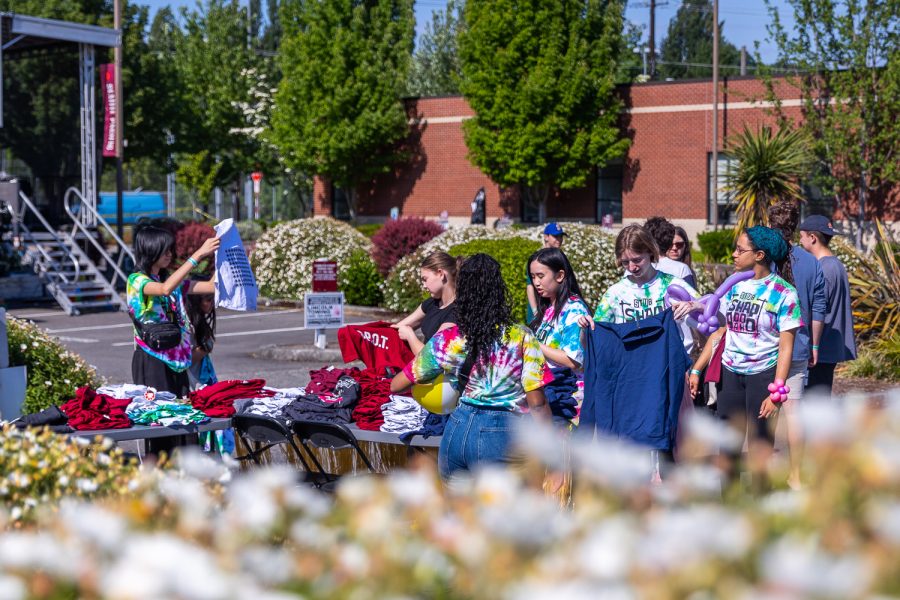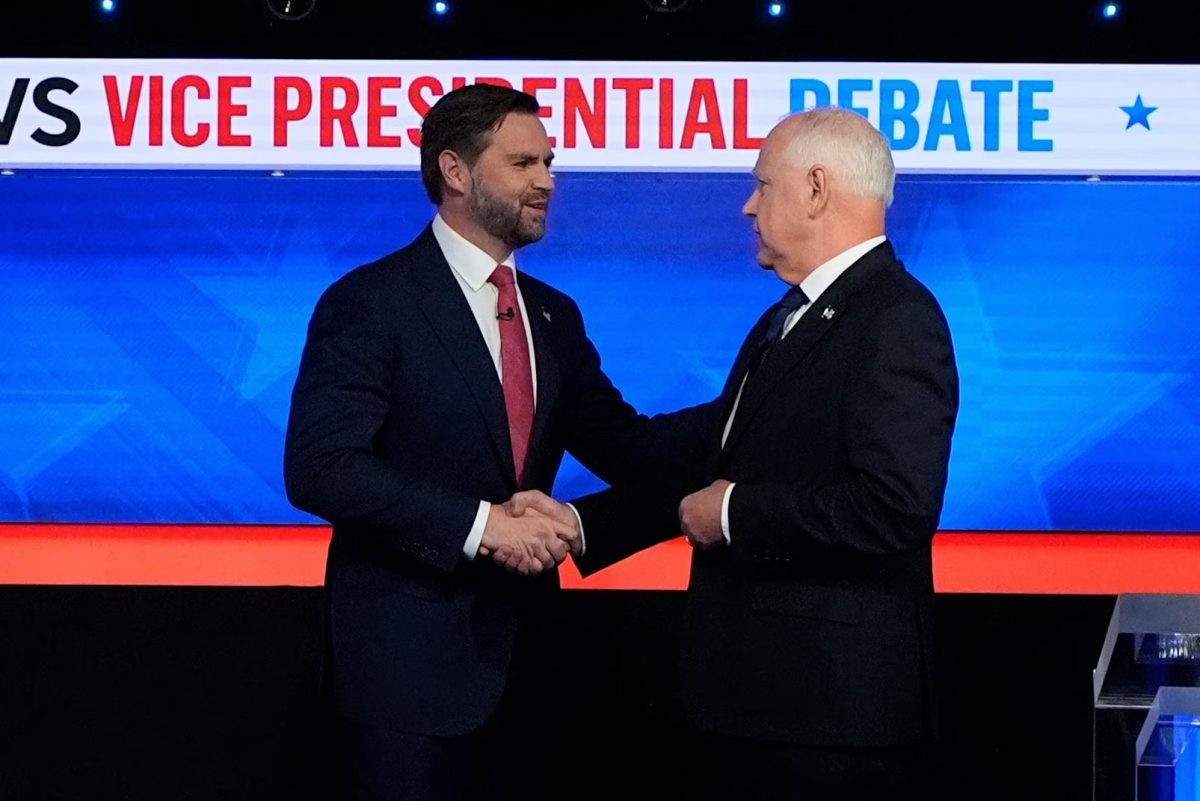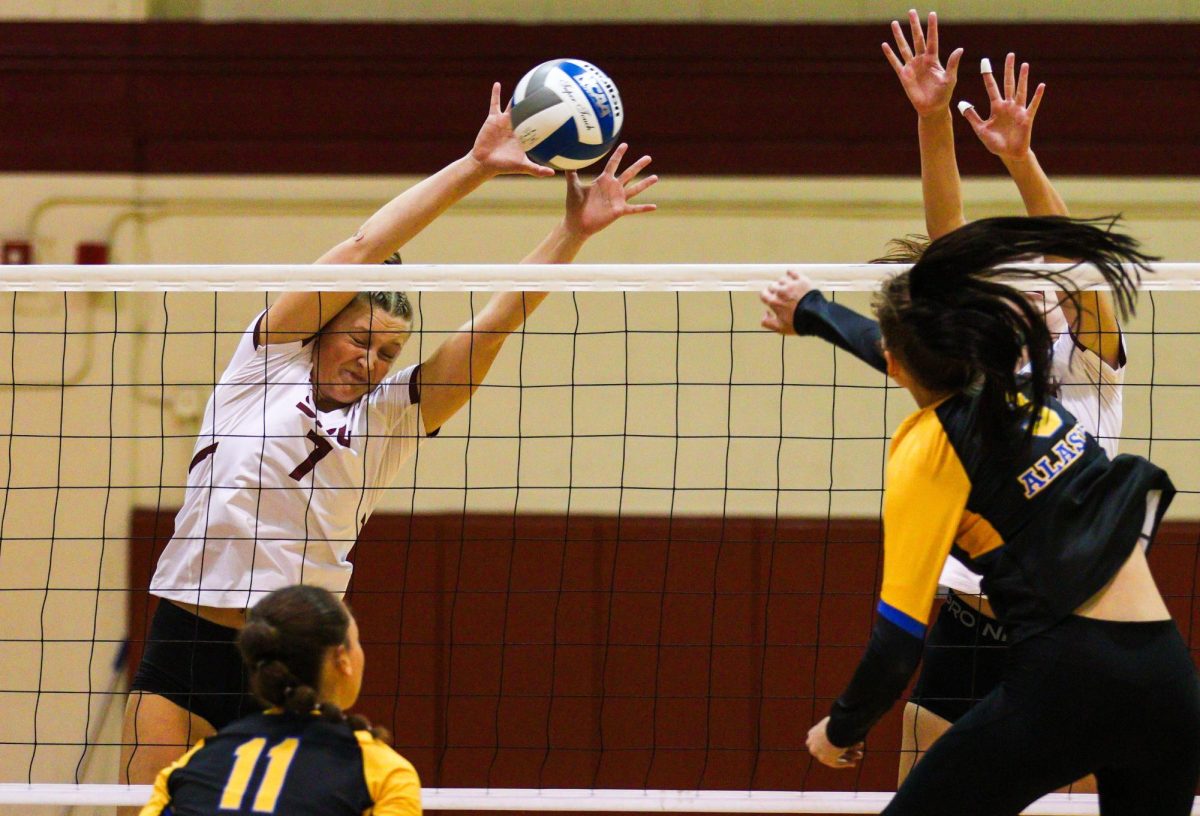Not a man’s world
The age-old issue of male entitlement
March 3, 2022

When I was in second grade, one of the walls in my classroom housed a banner with a timeless saying written on it in shiny pink letters. It sparkled whenever the sun shone through the windows.
“Treat others as you want to be treated.”
This idea appears simple in concept, but a certain portion of the population sometimes finds its execution rather difficult.
Due to the ever-present issue of patriarchal culture in the United States, certain men reach adulthood under the false impression that the world should cater to their every need. They may grow to expect everything from promotions at work to free drinks from a cute bartender at the dive bar down the street.
Once they realize how to use it to their advantage, men begin to fall in love with the concept of their own entitlement. They grow too comfortable and fail to acknowledge how their words or actions may be offending or hurting others. If unchecked, this dangerous patriarchy problem in America will continue to fester.
Men, consider this article a reality check. You are not inherently better or more deserving of life’s blessings than anyone else—regardless of if you think so.
If you’re feeling offended or hurt by my words, I implore you to think about whether or not your entitlement may have ever made someone else feel a similar way. I also ask you to keep reading.
I come face-to-face with many attributes of male entitlement on a daily basis, but one that I see all too often is men who tell rather than ask.
Male entitlement often strips men of their ability to ask for favors, even when another person hypothetically controls the scenario. The patriarchy conditions them to believe that the world simply operates on their timetable; they just ‘say the word’ to their peers, and that’s all it takes to grant their wishes.
Hey guys, please ask. Don’t tell.
Rather than demanding that someone act in a way that works best for you, consider their situation and schedule. Ask what time is most convenient for them. If you find yourself running late for a coffee date or a study group, kindly ask your companion if it would be possible to push back the meeting time. Don’t just tell them and then assume they will forgive your tardiness. This sort of rude behavior is a classic side effect of male entitlement, and it’s not an attractive quality.
Another attribute of male entitlement involves men disrespecting their female seniority figures. While I am a confident woman in my professional settings, many other women feel overshadowed and disrespected by men who are their subordinates. From undermining their decisions to talking over women in group discussions, entitled men often forget who they answer to.
Women should never have to earn a man’s respect, especially in the workplace; respect and dignity are basic human rights. Unfortunately, male entitlement clouds the judgment of those who allow it to take root in their hearts and minds. They mistakenly assume that their respect and attention is more valuable than that of the ‘average’ person.
One of the most frustrating complications that presents itself in an entitled man is a complete neglect of two of life’s most crucial words: “I’m sorry.”
Entitled men hardly ever feel remorseful, and they often don’t see the need to take ownership for their poor actions. If they offend or disrespect someone, they make attempts to justify their behavior rather than accepting responsibility and apologizing. They see themselves as blameless and refuse to recognize any of their shortcomings—the patriarchy has convinced them that they have none.
To any male readers who may say that ‘not all men are entitled,’ I must ask you why. If you claim to be above reproach in this regard, I can’t help but assume that your male entitlement is causing you to feel as though you deserve more respect or recognition. If you are denying your own entitlement, you are part of the problem.
My intention is not to shame or condemn any male-identifying people who read my words. Rather, I want to make you aware of how your actions—indirectly or not—will likely lead to burned bridges.
Male entitlement will continue to persist in our world unless men decide to eradicate it. The rest of society can’t help you. This choice is yours.

























































































Angela • May 25, 2022 at 10:51 pm
Seriously? Written as if this is 1972, instead of 2022. I remember 1972, when it was that way, with white men. Can’t speak to it in relationships with black men, or any of the other minority males, though I am sure it was there too. Yet, the author writes this as if it doesn’t happen among female relationships now. She writes as if patriarchy itself is most certainly evil. And the female “archy” (never spelled out) is most holy. I am here to tell you, women are not better, and relationships with them are most certainly are not automatically superior. I am one (a woman). I’ve been one for 68 years now. I remember Feminism in it’s however-many number wave, in the USA. I remember WA State before Roe v Wade, when they make abortion legal here in WA, before the Sups did it too. I lived it all, riding high at the time (without needing the drugs to get there). I married one of the exact same kinds of men she talks about. Recovered from that nasty divorce and finally accepted my fair share of the blame. Male led relationships are only bad when they are bad, just as female led relationships can be just as bad, though usually manifesting differently. Female Superiority is a bad thing, but rarely recognized. Just as Male Superiority is a bad thing. Perhaps that is why some people chose to skip the whole gender thing and just “be.”